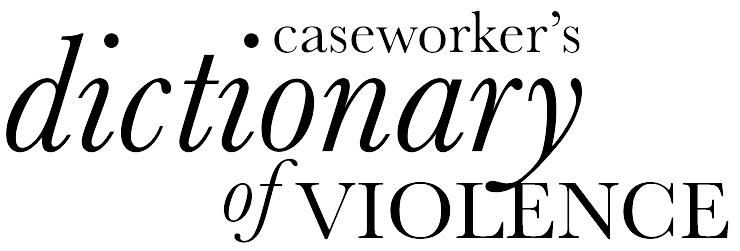Why this Dictionary?
Not much has been documented or understood about what working on GBV in rural areas, small towns and kasbahs reveals. Who are the people/ women who do this work? And why? What are their own locations or histories? What is their analysis of GBV?
This dictionary, produced in collaboration with The Third Eye, brings forth a body of words that are doorways through which we enter a world of meaning making, which may help us understand how and why GBV plays out in different social contexts, and how each player – family, caste, poverty, politics, police – play their part..
This project attempts to reimagine the category of the caseworker beyond their role as a first responder to crises or as a supportive presence, but as someone who actively pursues justice; and ‘knows’ how access to justice unfolds on the ground.
We worked with 12 caseworkers in rural and small town Uttar Pradesh, and through a process that included immersive writing, theatre-based pedagogies and online as well as in-person workshops spanning over a year, the caseworkers became the lexicographers of this dictionary.
Words, everyday words, common words, some unique words - all connected the caseworkers from three different districts. They also saw themselves connected to each other by a vocabulary that they used daily in their work.
After all, a large part of their work consists of their ability and power to convince families, extract the truth from a situation where ‘silence’ is the norm, to question, negotiate with and speak up against the local authorities, and counsel women and then, write up applications.
All of this involves a mindful use of words.
The caseworkers look at the violence experienced intimately, and know how it embeds itself in the everyday. They bring together their work and their own personal struggles with violence to throw light on how devastating experiences of GBV are braided into everyday acts of violence, thereby making the unbearable bearable. This connection between the exceptional and the ordinary draws on Veena Das’s work on how communities and individuals make meaning of the catastrophic in their everyday.
Through an exploration of words that are part of the local GBV lexicon, the caseworkers raise important questions regarding the issue of access to justice, whether justice and repair work can go hand in hand, the limits of rationality and how ideas related to social justice and feminist law embed themselves in rural heartlands and kasbahs in India.
What the caseworkers handle are not mere cases, but sites for construction of knowledge, where the banal, the intolerable and extraordinary collide. Through this process, they also turn the gaze onto themselves.
About the Team
The caseworkers come from three organisations—Vanangana in Banda and Chitrakoot, Sahjani Shiksha Kendra in Lalitpur and Sadbhavana Trust in Lucknow, with five to 30 years of experience between them. Most belong to and live in the communities they work with. Many in the group have themselves experienced violence and started their own journey as ‘cases’ prior to becoming caseworkers. They have emerged from grassroots movement building work in the 90s and have engaged with and been influenced by feminist movements. They continue to do this work, especially with marginalised communities, in extremely resource-trapped and difficult circumstances.
Lexicographers
Pushpa Devi, Awdesh Gupta, Manju Soni, Shabina Mumtaz, Shobha Devi, Hameeda Khatoon, Huma Firdous, Tabassum, Kusum Ahirvar, Meena Devi, Rajkumari, Rajkumari Prajapati
The lexicographers (caseworkers) produced this dictionary in collaboration with The Third Eye team.
Concept
Dipta Bhog
Producers
Dipta Bhog and Astha Bamba
Facilitated by
Apeksha Vora
With inputs from The Third Eye Team
English Editorial: Shabani Hassanwalia, Nisha Susan, Ruchika Negi
Hindi Editorial: Suman Parmar, Apeksha Vora
Video Producers: Shivam Rastogi, Gurleen Grewal, Shabani Hassanwalia
Podcast Producers: Madhuri Adwani, Juhi Jotwani
Social Media: Sadia Saeed, Kulsum Nisha
Website: Sadia Saeed
Special thanks to Ektaa and Anagarika from Maraa for facilitating the first workshop for this project.
Webpage design by Yashas Chandra.
Cover Art by Uma Ketha


